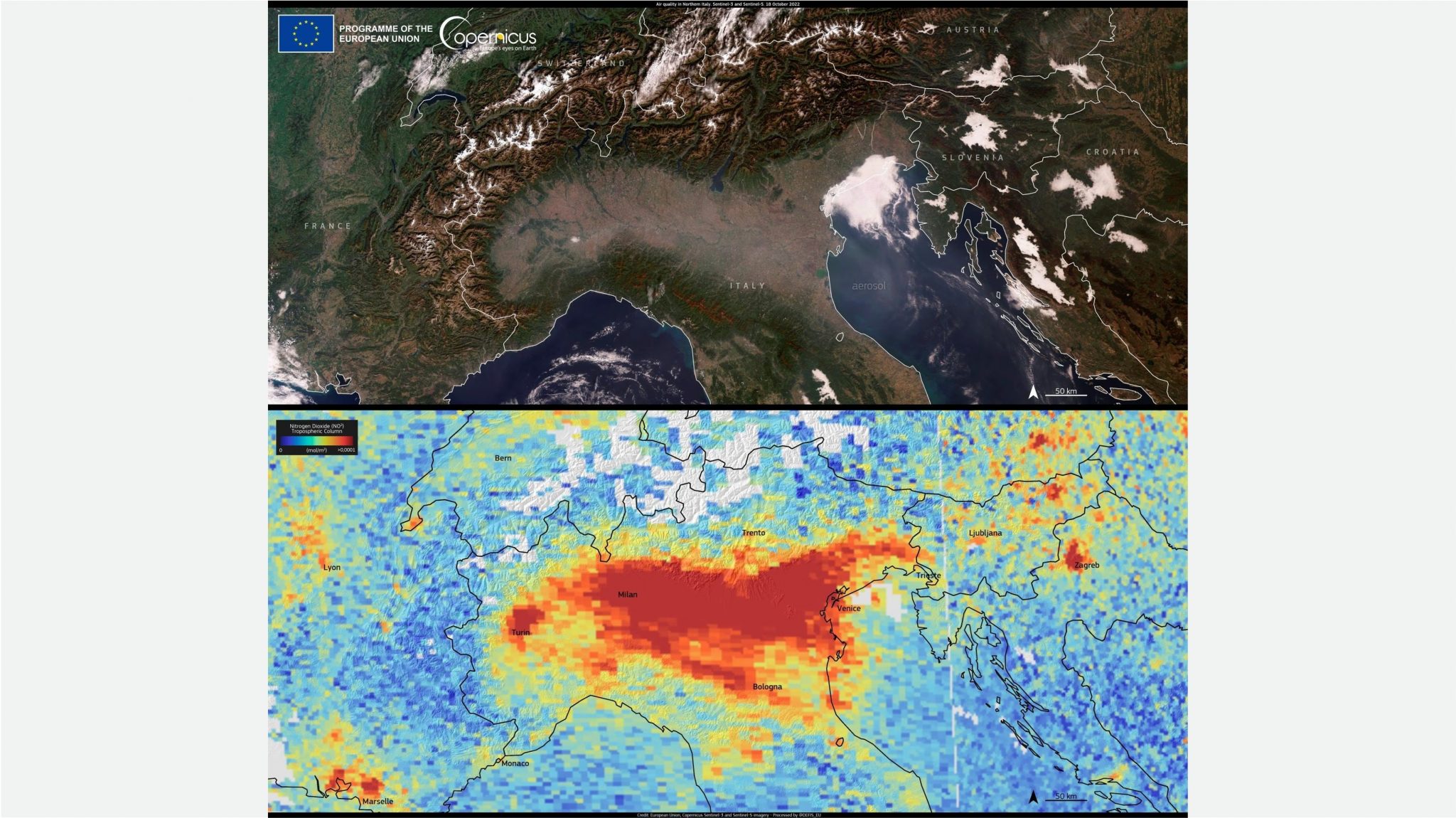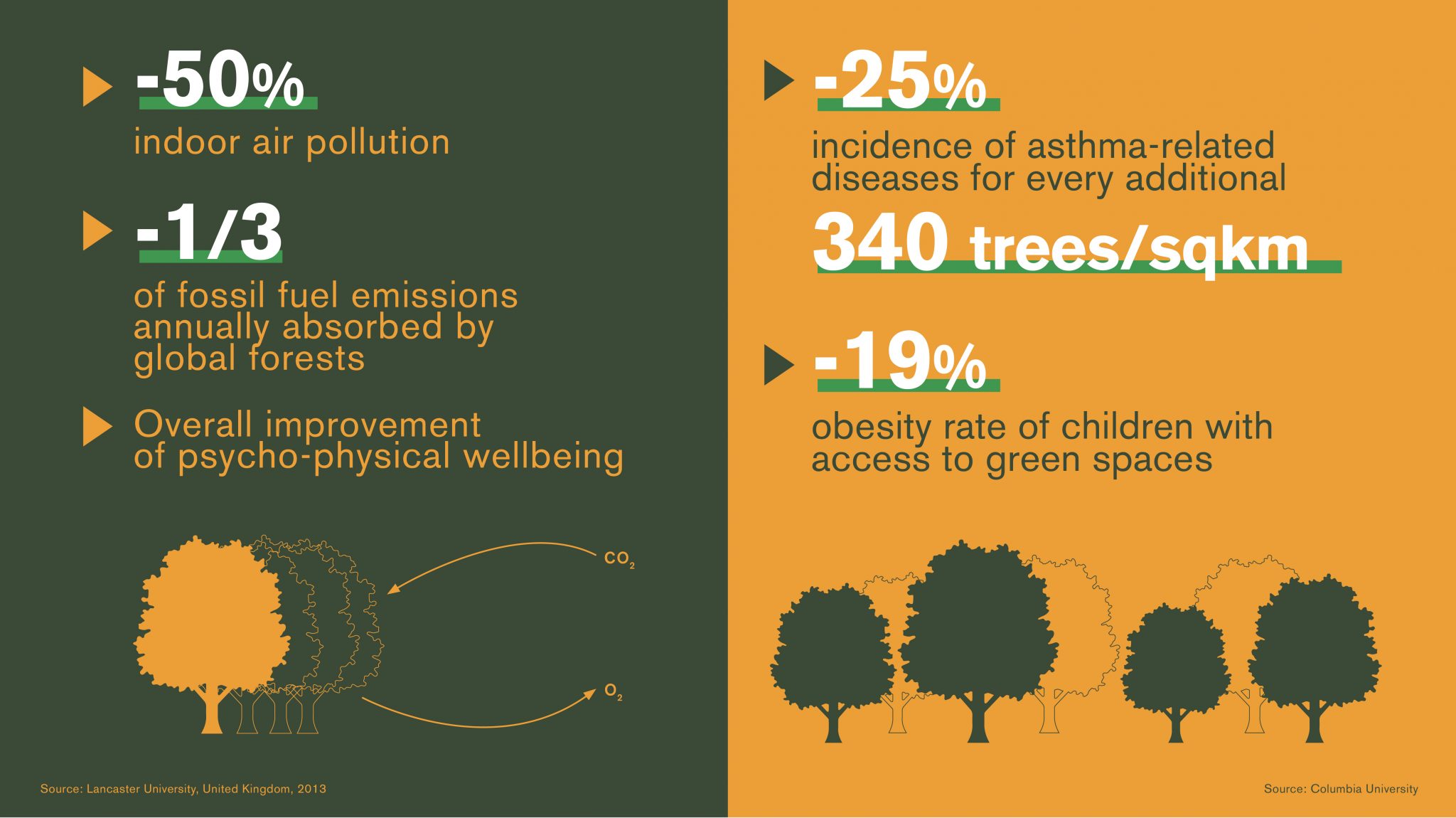On October 3rd, the European satellite Copernicus detected record concentrations of PM 10 and PM 2.5 fine particles in Milan and many other cities in the Po Valley – the highest daily level of fine dust in the world, worse than Beijing, Shanghai and New Delhi.
At the beginning of October, analysts write, a high pressure system brought clear skies over northern Italy, but also increased particulate concentrations in the Po Valley. According to local authorities, in cities such as Milan and Turin, PM 10 and PM 2.5 levels exceeded the World Health Organisation’s thresholds and limits for the main air pollutants that pose health risks; continued exposure contributes to the development of respiratory and cardiovascular diseases or lung cancer.
For these reasons, a response in the cities is even more urgent, a common effort towards urban forestation: the presence of trees, in fact, contributes to the psychophysical wellbeing of citizens, absorbing CO2 and particulate matter, reducing the heat island effect and guaranteeing social cohesion – in fact, it has been proven that living in contact with green areas lowers health risks and improves psychological conditions.
The theme of health in cities is among those addressed by the World Forum on Urban Forests (WFUF), organised thanks to the collaboration of the FAO, the Arbor Day Foundation, the United States Forest Service (USFS), the Smithsonian Institution, the Politecnico di Milano, the Italian Society of Silviculture and Forest Ecology (SISEF) and the International Society of Arboriculture (ISA), and promoted by Stefano Boeri Architetti, whose second meeting will be held from 16 to 20 October in Washington D.C.
The news was also reported by Il Giorno


